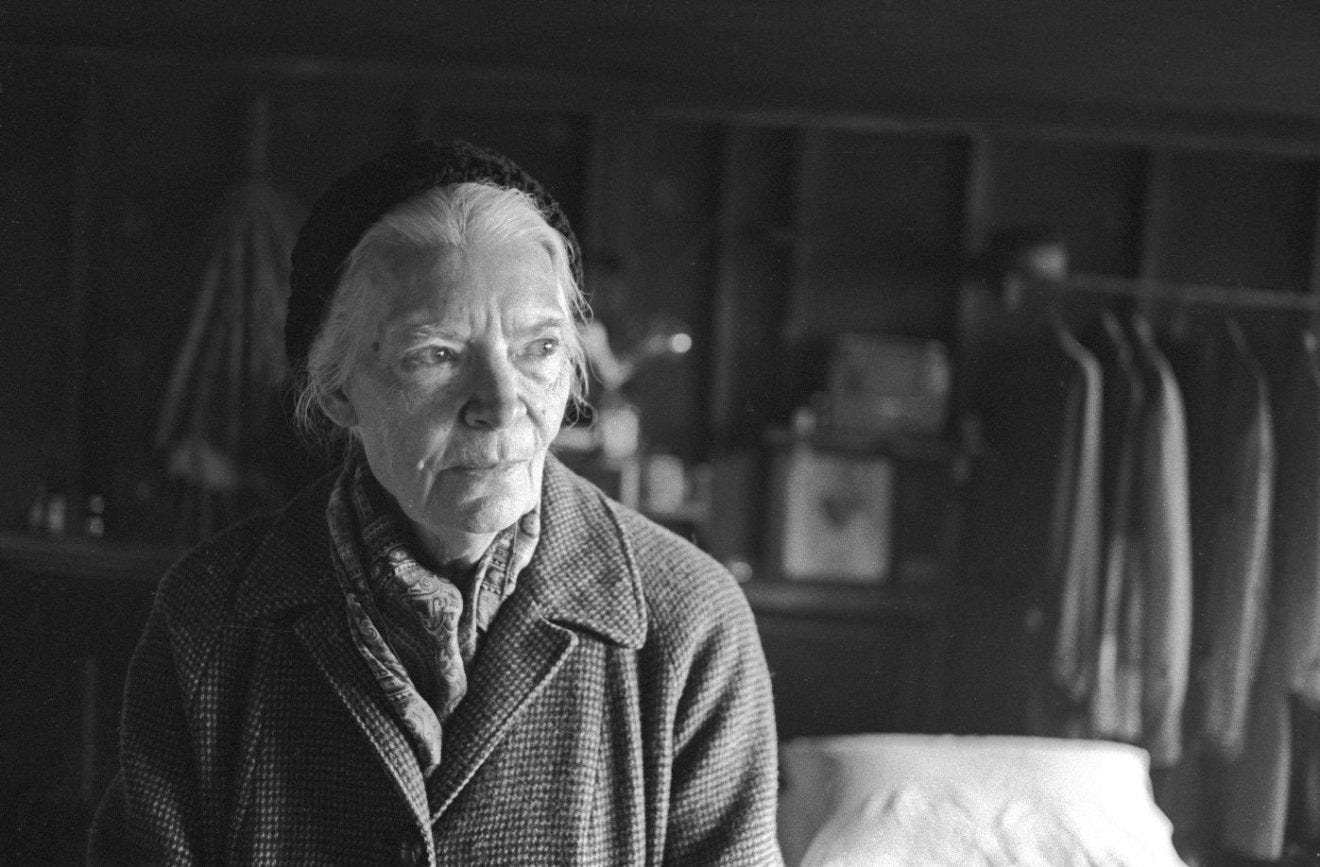In 1922, Dorothy Day was arrested for the second time. Doing jail time as a suffragist in Washington, DC among socialites and intellectuals was vastly different from doing time among prostitutes dragged before the “morals court.”
Image from: What I learned about justice from Dorothy Day (uscatholic.org)
She later wrote, “I do not think that ever again, no matter of what I am accused, can I suffer more than I did then from shame and regret, and self-contempt. Not only because I had been caught...but because of my own consciousness that I deserved it.” What exactly did she do?
An older acquaintance, Mae, who was also a former drug addict and thief, had attempted suicide, and signed herself out of the hospital. Mutual friends had allowed her to stay at a flophouse owned by Industrial Workers of the World (“Wobblies”). When she called seeking food and clothing, Day visited and found her so weak that she decided to stay overnight.
Police targeted the house that night, part of regular round-ups of suspected communists at the time. Surprised, they arrested the two women, assuming them to be ladies of the evening. Calloused from prior convictions, Mae laughed, but Dorothy was “horrified.” Vice raids filled the holding cell with actual prostitutes throughout the night. Hanging their dresses nearby to keep them clean, the scantily-clad women interacted gaily. An accused madam attempted to comfort her by drawing attention to the tears of another inmate. “There’s a first time for everyone, honey.” Day didn’t protest her innocence.
Several lost children were included among the inmates for a time, and the women put their dresses back on and tried to soothe them. Sandwiches were available from the jail matron for a dollar. (A lot of money back then!) The red light ladies shared their largesse with one another, tenderly looking after Day and the children.
Before appearing before the judge, they were strip-searched and checked for venereal diseases. They had the option of going to the Lakeland Hospital for ten days or to the county jail. Aware that friends were already at work on their release, they chose the county jail. It was even more shocking. A drug addict in the next cell “beat her head against the bars...and howled like a wild animal.” It was her first up-close view of such suffering.
Whether she knew it or not, it was another step in her road to the Catholic Church. “I felt the sadness of sin, the unspeakable dreariness of sin, from the first petty self- indulgence to this colossal desire which howled through the metal walls.” Dorothy and Mae were released the next day.
“The instinct for self-preservation made me forget everything but a frantic desire for freedom, to get away from these depths into which I had fallen...I could get away, paying no penalty, because of my friends, my background, my privilege. I suffered but was not part of it. I put it from me. It was too much for me.”
In time, God showed her the freedom she yearned for, and she spent her life sharing it with those who had taught her the true meaning of human freedom.






Great story!
Sandra Dutton